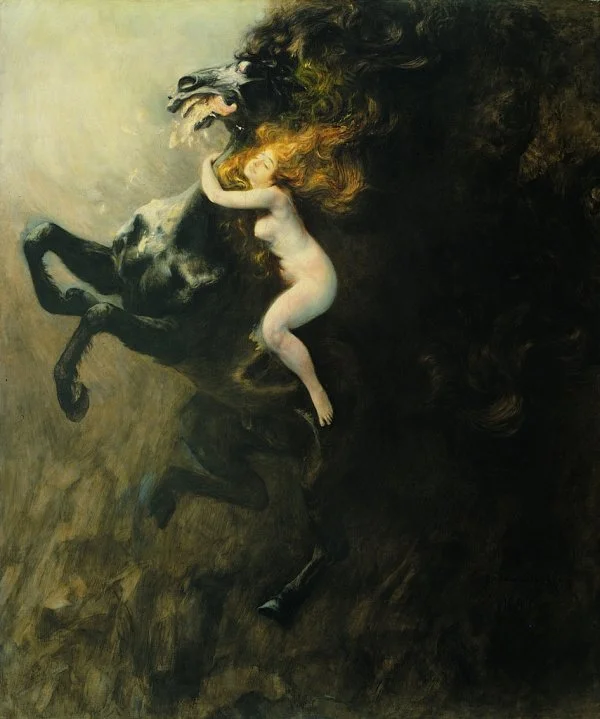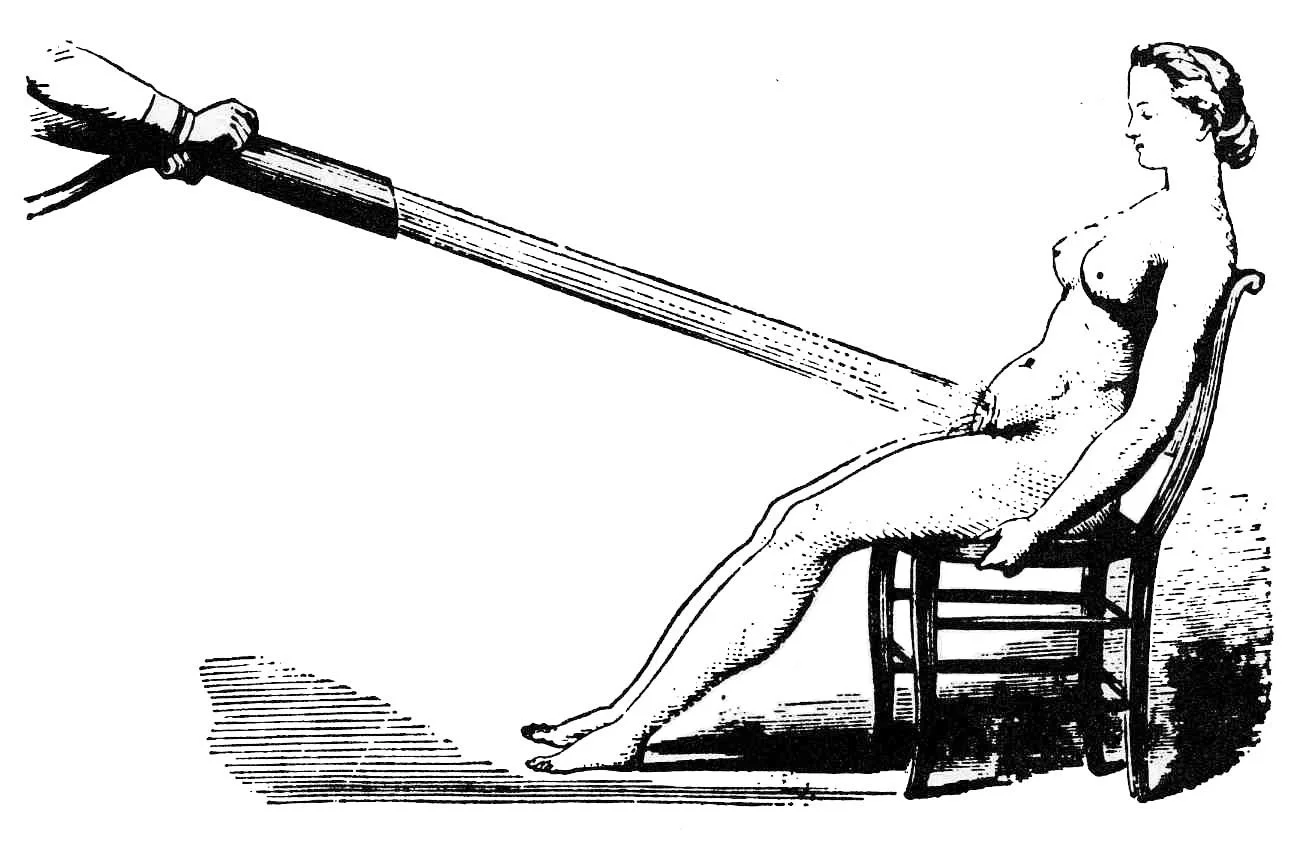By The Landlord
Hamlet: Lady, shall I lie in your lap?
Ophelia: You are keen, my lord, you are keen.
Hamlet: It would cost you a groaning to take off my edge. – Shakespeare, Hamlet
“Now piercèd is her virgin zone;
She feels the foe within it.
She hears a broken amorous groan,
The panting lover's fainting moan,
Just in the happy minute.” – John Wilmot, 2nd Earl of Rochester
“It felt like everything opening up in every part of my body, like my body was made up of one hundred million tiny knots and every one of them came untied at once and then I was melting, sinking like soft pudding.” – Lily Seabrooke, The Simple Answer
“Connie threw back her head, opened her mouth and cried to the heavens, as every sensation built and exploded inside her, fireworks and waterfalls, starburst and throbbing heat.” – Lynne Connolly, Rogue in Red Velvet
“Cornering is like bringing a woman to climax.” – Jackie Stewart
“So, you can make me cum. That doesn't make you Jesus.” – Tori Amos
“In my next life I want to live backwards. Start out dead and finish off as an orgasm.” – Woody Allen
Fireworks of the loins. Volcano lava of the groins. Laughter of the genitals. A twisting sneeze in your controls. A see-saw, sweaty, romping no-place race, with twisted, concentrated face? The big O? The little O? Mountain gorges, gushing flow, relief and feeling all aglow.
It’s among life’s biggest motivators, but also great distractors. There are few things that completely take over body and concentrate the mind, albeit briefly, than the orgasm, and songwriters, performers, and many other artists, sports stars, actors, goal-scorers, racing drivers, public speakers and many who are highly driven, are perhaps seeking to recreate it, or replace within their work. So this week, whether in music, vocal delivery, direct or metaphorical lyrics, from imaginative braggadocio promises to complete delivery, we’re hoping for a series of evocative musical climaxes through the orgasmatron of song.
But how is it described? Whether from writers or in common language, the orgasm has found its way into many entertaining, descriptive, subtle, or other euphemisms. Late 16th- and early 17th-century playwrights and poets, also reflecting street language would constantly seek to “bring off”, but also in common usage there’s the more painful sounding and explicit “cleave the pin”, and an assumed archery society-based “break one’s arrow”, which is certainly a pointed one. But for the slower-burn candle lovers out there, there was also the gentler “melting”, and “fading” was particularly popular in late 16th century, was perhaps a throwback to the medieval French “la petite mort”, comparing orgasm to (brief) death, fainting, or loss of weakening of consciousness.
Not all orgasms have to be achieved via contact with another person of course. Check out this imaginative evocation of the female orgasm in the painting Frenzy of Exultations (1894) by Władysław Podkowiński: Nice horsey.
Ride on time: Frenzy of Exultations (1894) by Władysław Podkowiński
Sex, death, birth, or riding horses? Society has often wrapped them all in the same loin cloth. And while the male orgasm often dominates in cultural reference, that hasn’t always been the case. The female orgasm has suffered many centuries of repression, but in medieval scientific theory of sexual reproduction thought it was absolutely required if a sex act was going to produce a baby.
Shakespeare’s language is of course ripe with sexual reference, and while Romeo and Juliet is among one of his tragedies, there is also double meaning, with dying, dagger and her sheath, having whole other connotations to a shouty, rowdy, filthy-minded Globe audience in last act act as Juliet takes her dead lover’s ‘weapon’ and, and readies to enter it, in her final climactic scene:
Juliet: O happy dagger!
This is thy sheath;
there rust, and let me die.
“Letting go” became another common phrase in the sex industry of the 18th century but it was the repressed, uptight Victorian age that is particularly descriptive, often drawing on other recreational activities. Perhaps there’s a rowing reference of “hard strokes” (1830s), green bowling’s “short shoves” (1880s). But also there’s the less subtle “jet one's juice” (1870s) or the even less savoury “Blow one's lump” (1880s). Do any of these, or other phrases crop up in song?
The early 20th century also summoned up other descriptions from the painful “crack the marbles”, to the bed head and rafter shaking “'kick the beam”. But perhaps the strangest euphemism of the 20th century is to compare climaxing to “crisis”, giving a sense of losing or all control. In DH Lawrence’s notorious, and for many years banned Lady Chatterley’s Lover, one of the revolutionary points is how it is Constance’s pleasures as well as disappointment that is so explicitly described, particularly pertains to rugged gamekeeper Oliver Mellors’ “crisis”:
“For a moment he was still inside her, turgid there and quivering. Then as he began to move, in the sudden helpless orgasm, there awoke in her new strange thrills rippling inside her. Rippling, rippling, rippling, like a flapping overlapping of soft flames, soft as feathers, running to points of brilliance, exquisite and melting her all molten inside. It was like bells rippling up and up to a culmination …
And this time the sharp ecstasy of her own passion did not overcome her; she lay with her ends inert on his striving body, and do what she might, her spirit seemed to look on from the top of her head, and the butting of his haunches seemed ridiculous to her, and the sort of anxiety of his penis to come to its little evacuating crisis seemed farcical.”
So your orgasm songs might refer to all kinds of climax, but also anti-climax, and also faking.
But while Lawrence’s 1928 novel both shocked and fascinated society, the Victorians equally terrified, but also fascinated by the female orgasm, and saw it has a course, but also cure for ungovernable emotional excess, or hysteria. An obsession for Sigmund Freud and Jean-Martin Charcot, and others, hysteria originating from the Greek word for the uterus, hystera. ‘Treatment’ came, as it were, in many stimulating forms …
An illustration of water treatment for ‘hysteria’ (1860)
Further into the last century, coming, or cumming, particularly the latter, is seen as a modern word that has had evolved in pornographic novels by the 1970s, but it’s origin, if not spelling is much older. Cum is probably nothing to do with the Latin word ‘cum’, which means ‘with’ or ‘together’, but but the first spelling came, again in reference to death in the strong innuendo of "I come, I come, sweet death, rock me a-sleep!" From Nashe’s His Dildo in the 1590s, but more directly in 1650, with the poem Walking In A Meadowe Greene from a folio of "loose songs" collected by the intriguing figure of Bishop Percy:
They lay so close together,
they made me much to wonder;
I knew not which was wether,
vntill I saw her vnder.
then off he came & blusht for shame
so soone that he had endit;
yet still shee lyes, & to him cryes,
"Once More, & none can mend it."
The man in this poem blushes for shame from his early climax, so his lover asks for another go. It can be a common male problem, so how can that be abated? In this clip, Alan Partridge, reckons he can delay “the wolf from the door” by discussing the pedestrianisation of Norwich city centre, that before the somewhat anti-climactic pudding intervention, of course.
Orgasms in TV and film are plentiful, and rarely all that realistic, or simply making a point, such as the pizza scene in When Harry Met Sally of course, and in Amelie, the French heroine gets her pleasures mainly from dipping her hands into bags of smooth flour and grain.
Let’s just end with a couple of more fantastic examples. In Everything You Always Wanted to Know About Sex (1972), Woody Allen’s sperm and co are all hands on deck to keep up with the lady’s needs:
And while there’s the orgasmatron in Woody’s great comedy The Sleeper, which, well, comes, all too briefly …
… let’s climax, appropriately enough, with Durand-Durand's musical Excessive Machine in Barbarella, one designed by the evil scientist to kill with pleasure, but when Jane Fonda gets in, the sparks really fly:
There so much more to discuss about the orgasm, but we have to get to our destination. So then, it’s time to get working on your own climaxes, either alone or coming together, and taking care of the pleasure principle is our very own doctor of great taste, the marvellous magicman! Place your musical orgasms in comments below for the bell of climax to be rung at 11pm UK time on Monday for playlists published next week. Click on those buttons. The pleasure is all ours.
New to comment? It is quick and easy. You just need to login to Disqus once. All is explained in About/FAQs ...
Fancy a turn behind the pumps at The Song Bar? Care to choose a playlist from songs nominated and write something about it? Then feel free to contact The Song Bar here, or try the usual email address. Also please follow us social media: Song Bar Twitter, Song Bar Facebook. Song Bar YouTube, and Song Bar Instagram. Please subscribe, follow and share.
Song Bar is non-profit and is simply about sharing great music. We don’t do clickbait or advertisements. Please make any donation to help keep the Bar running:



